Fleurs du Mal Magazine


Or see the index
En écho au mouvement « Femme, Vie, Liberté », 16 femmes iraniennes livrent ici leurs témoignages.
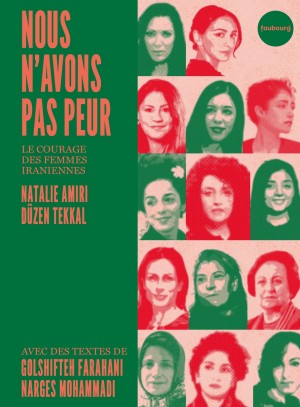 Ces voix s’élèvent parfois depuis l’exil, parfois depuis des cellules de prison. Elles parlent d’une vie sans droits contrôlée par la police des mœurs, d’humiliations, de mise sous tutelle et de détresse économique.
Ces voix s’élèvent parfois depuis l’exil, parfois depuis des cellules de prison. Elles parlent d’une vie sans droits contrôlée par la police des mœurs, d’humiliations, de mise sous tutelle et de détresse économique.
Mais aussi d’une nouvelle génération, d’une révolution que plus rien ne pourra arrêter, de libertés qui se gagnent pas à pas et de l’incroyable résilience du peuple iranien. Leurs textes sont bouleversants, remplis de larmes et porteurs d’espoir. Leur bravoure est une leçon d’humanité.
Avec les témoignages de : Golshifteh Farahani, Ghazal Abdollahi, Parastou Forouhar, Shohreh Bayat, Shila Behjat, Ani, Nargess Eskandari-Grünberg, Fariba Balouch, Rita Jahanforuz, Jasmin Shakeri, Shirin Ebadi, Masih Alinejad, Narges Mohammadi, Nazanin Boniadi, Nasrin Sotoudeh, Leily.
Traduit de l’allemand par Mathilde Ramadier, sauf pour le témoignage de Golshifteh Farahani, recueilli par Sophie Caillat.
Nous n’avons pas peur
Le courage des femmes iraniennes
Natalie Amiri & Düzen Tekkal
Avec le témoignage de Golshifteh Farahani
Traduction : Mathilde Ramadier
Editions du Faubourg
ISBN : 9782493594686
Publié le 1 mars 2024
208 pages
140 x 190 mm
Acheter le livre en librairie au prix de € 18,-
• fleursdumal.nl magazine
More in: #Editors Choice Archiv, - Book News, - Book Stories, - Bookstores, Archive A-B, Archive S-T, Banned Books, Feminism, Persian Art, REPRESSION OF WRITERS, JOURNALISTS & ARTISTS
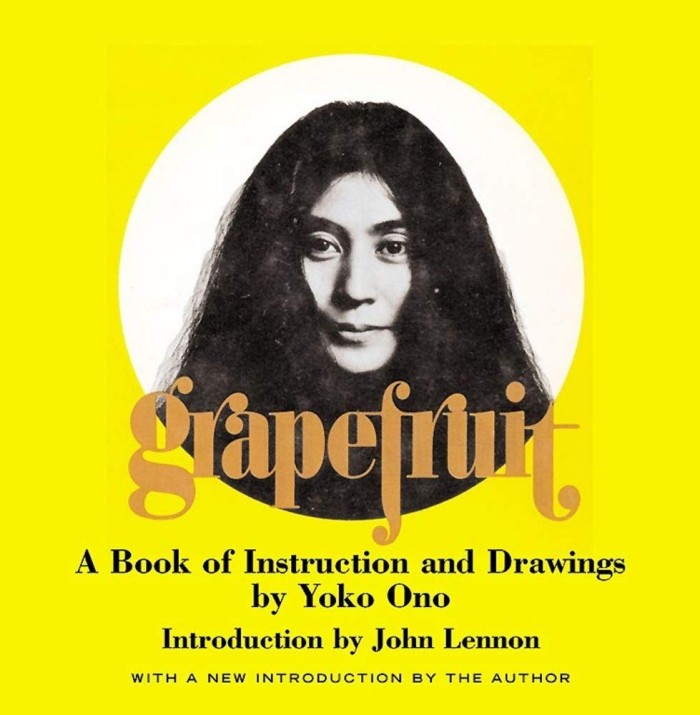
TATE MODERN LONDON
Yoko Ono Music of the Mind
15 February – 1 September 2024
Delve into the powerful, participatory work of artist and activist Yoko Ono
Yoko Ono (1933) is a leading figure in conceptual and performance art, experimental film and music. Developing her practice in America, Japan and the UK, she is renowned for her activism, work for world peace, and environmental campaigns. Ideas are central to her art, often expressed in poetic, humorous and radical ways.
Spanning more than seven decades, the exhibition focuses on key moments in Ono’s career, including her years in London from 1966 to 1971, where she met John Lennon (1940 – 1980).
The show explores some of Ono’s most talked about artworks and performances, from Cut Piece (1964), where people were invited to cut off her clothing, to her banned Film No.4 (Bottoms) (1966-67) which she created as a ‘petition for peace’.
Alongside her early performances, works on paper, objects, and music, audiences will discover a selection of her activist projects such as PEACE is POWER and Wish Tree, where visitors can contribute personal wishes for peace.
Through her instructions and event scores, Ono invites visitors to take part in both simple acts of the imagination and active encounters with her works.
The exhibition is organised by Tate Modern, London in collaboration with Kunstsammlung Nordrhein-Westfalen, Düsseldorf
Y O K O O N O & J O H N L E N N O N
• fleursdumal.nl magazine
More in: #Editors Choice Archiv, - Book Lovers, - Book Stories, Archive K-L, Archive O-P, Archive Q-R, Art Criticism, Exhibition Archive, FDM in London, Pax for peace, Performing arts, Yoko Ono & John Lennon
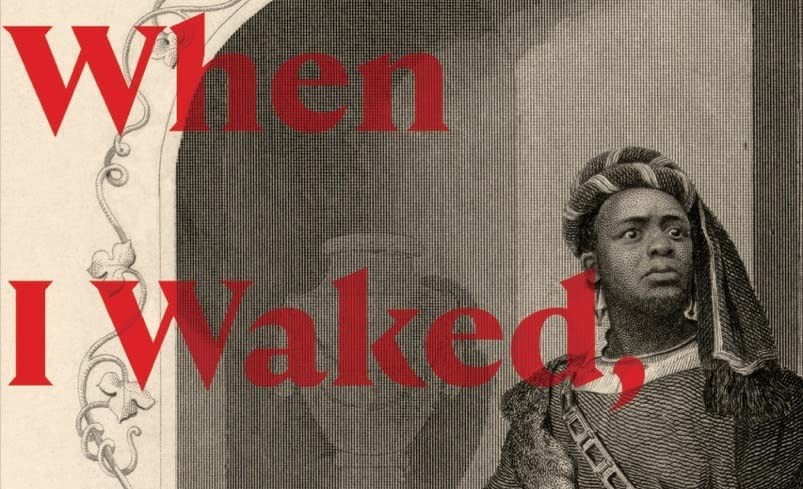
A dynamic, moving hybrid work that celebrates Black youth, often too fleeting, and examines Black lives lost to police violence.
In this astonishing volume of poems and lyric prose, Whiting Award–winner A. Van Jordan draws comparisons to Black characters in Shakespearean plays―Caliban and Sycorax from?The Tempest, Aaron the Moor from?Titus Andronicus, and the eponymous antihero of? Othello―to mourn the deaths of Black people, particularly Black children, at the hands of police officers. What do these characters, and the ways they are defined by the white figures who surround them, have in common with Tamir Rice, Trayvon Martin, and other Black people killed in the twenty-first century?
Balancing anger and grief with celebration, Jordan employs an elastic variety of poetic forms, including ekphrastic sestinas inspired by the photography of Malick Sidibé, fictional dialogues, and his signature definition poems that break down the insidious power of words like “fair,” “suspect,” and “juvenile.” He invents a new form of window poems, based on a characterization exercise, to see Shakespeare’s Black characters in three dimensions, and finds contemporary parallels in the way these characters are othered, rendered at once undesirable and hypersexualized, a threat and a joke.
At once a stunning inquiry into the roots of racist violence and a moving recognition of the joy of Black youth before the world takes hold, When I Waked, I Cried to Dream Again expresses the preciousness and precarity of life.
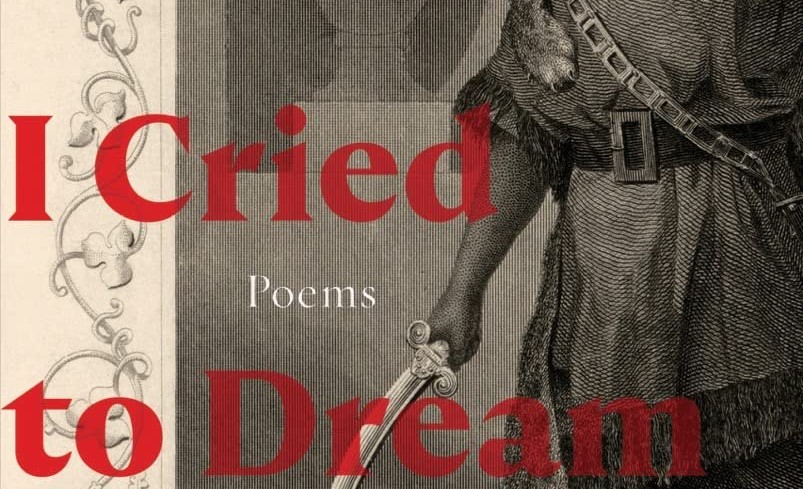
A. Van Jordan is the author of four collections: Rise, which won the PEN/Oakland Josephine Miles Award (Tia Chucha Press, 2001); M-A-C-N-O-L-I-A, (2005), which was listed as one the Best Books of 2005 by The London Times; Quantum Lyrics, (2007); and The Cineaste, (2013), W.W. Norton & Co. Jordan has been awarded a Whiting Writers Award, an Anisfield-Wolf Book Award, and a Pushcart Prize. He is also a recipient of a Guggenheim Fellowship (2007), a United States Artists Fellowship (2009), and a Lannan Literary Award in Poetry (2015).
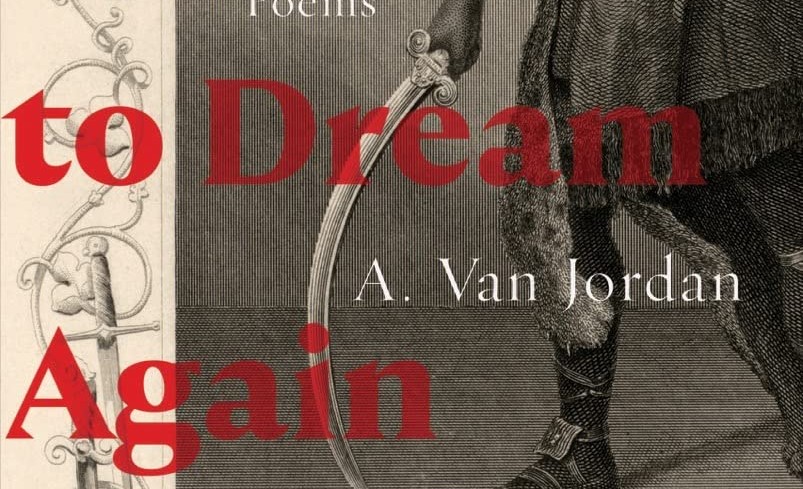
When I Waked, I Cried To Dream Again:
Poems by A. Van Jordan
Publisher: W. W. Norton & Company (June 6, 2023)
Language: English
Hardcover
144 pages
ISBN-10 : 1324050934
ISBN-13 : 978-1324050933
Price $26.95
fleursdumal.nl magazine
More in: #Modern Poetry Archive, - Book News, - Bookstores, Archive I-J, Archive I-J, Racism

BANNED BOOKS WEEK
LET FREEDOM READ
During Banned Books Week 2023!
October 1 – 7, 2023
The American Library Association has announced the theme for Banned Books Week 2023: “Let Freedom Read!” Banned Books Week will take place October 1 – 7, 2023.
This annual event highlights current and historical attempts to censor books in libraries and schools and the value of free and open access to information.
Banning books restricts information and discourages freedom of thought. It undermines one of the primary functions of education: teaching students how to think for themselves.
The 2023 Banned Books Week theme – ‘Let Freedom Read’ – captures what’s at stake for our democracy: that the safety of our right to speak and think freely is directly in proportion to our right to read.
LET FREEDOM READ
During Banned Books Week 2023!
BANNED BOOKS WEEK 2023
October 1 – 7, 2023
More on website: https://bannedbooksweek.org/
www.fleursdumal.nl
magazine for art & literature
More in: - Book Lovers, - Book News, - Bookstores, AUDIO, CINEMA, RADIO & TV, Banned Books, PEN Actions
The title poem, “Because I Love You, I Become War,” is a poem of feminist genius, deserving to be in the pantheon of all-time brilliant poems!
Sascha A. Akhtar, author of #LoveLikeBlood
 Raw[ness] exudes from this collection of poems and poetics prose about love and war, both corporal and terrestrial. Whether speaking of “rose petals yawning like little girls, like the daughters I never bore,” or a California wildfire’s “yellowed skies” and “smoke taint,” even color is narrative in Eileen Tabios’ dexterous hands.
Raw[ness] exudes from this collection of poems and poetics prose about love and war, both corporal and terrestrial. Whether speaking of “rose petals yawning like little girls, like the daughters I never bore,” or a California wildfire’s “yellowed skies” and “smoke taint,” even color is narrative in Eileen Tabios’ dexterous hands.
Eileen R. Tabios has released over 60 collections of poetry, fiction, essays, and experimental biographies from publishers in 11 countries and cyberspace. DOVELION: A FAIRY TALE FOR OUR TIMES (AC Books, 2021) is her first long- form novel. Her 2020 books include a short story collection, PAGPAG: The Dictator’s Aftermath in the Diaspora; a poetry collection, THE IN(TER)VENTION OF THE HAY(NA)KU (Marsh Hawk Press, 2019); and her third bilingual edition (English/Thai), INCULPATORY EVIDENCE: Covid-19 Poems.
Her award-winning body of work includes invention of the hay(na)ku, a 21st century diasporic poetic form, and the MDR Poetry Generator that can create poems totaling theoretical infinity, as well as a first poetry book, Beyond Life Sentences, which received the Philippines’ National Book Award for Poetry. Translated into 11 languages, she also has edited, co-edited or conceptualized 15 anthologies of poetry, fiction and essays. Her writing and editing works have received recognition through awards, grants and residencies.
Because I love you, I become war
Poems & Uncollected Poetics Prose
by Eileen R. Tabios
Pub Date: 5/30/2023
Publisher: Marsh Hawk Press, Inc.
ISBN-10 : 099865826X
ISBN-13 : 978-0998658261
Binding: Paperback
Pages: 332
Price: $ 22.00
• fleursdumal.nl magazine
More in: #Editors Choice Archiv, - Book News, - Bookstores, Archive S-T, Archive S-T, Feminism, TRANSLATION ARCHIVE
This keenly anticipated new collection from the Costa Poetry Award-winner speaks ‘out of fear and grief into splendour and joy’.
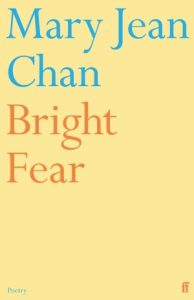 Following their award-winning debut, Flèche (2019), comes Mary Jean Chan’s gleaming second collection: Bright Fear. Through poems which engage fearlessly with intertwined themes of identity, multilingualism and postcolonial legacy, Chan’s latest work explores a family’s evolving dynamics, as well as microaggressions stemming from queerphobia and anti-Asian racism that accompanied the Covid pandemic.
Following their award-winning debut, Flèche (2019), comes Mary Jean Chan’s gleaming second collection: Bright Fear. Through poems which engage fearlessly with intertwined themes of identity, multilingualism and postcolonial legacy, Chan’s latest work explores a family’s evolving dynamics, as well as microaggressions stemming from queerphobia and anti-Asian racism that accompanied the Covid pandemic.
Yet Bright Fear remains deeply attuned to moments of beauty, tenderness and grace. It asks how we might find a home within our own bodies, in places both distant and near, and in the ‘constructed space’ of the poem. The contemplative central sequence, Ars Poetica, traces the radically healing and transformative role of poetry during the poet’s teenage and adult years, culminating in a polyphonic reconciliation of tongues. Throughout, Chan offers us new and galvanising ways to ‘withstand the quotidian tug- / of-war between terror and love’.
Mary Jean Chan is the author of Flèche (Faber, 2019), which won the Costa Book Award for Poetry and was shortlisted for the International Dylan Thomas Prize, the John Pollard Foundation International Poetry Prize, the Jhalak Prize, the Seamus Heaney Centre First Collection Poetry Prize and a Lambda Literary Award. Chan won the 2018 Geoffrey Dearmer Prize and was shortlisted for the Forward Prize for Best Single Poem in 2017 and 2019, receiving an Eric Gregory Award in 2019. Chan co-edited the anthology 100 Queer Poems (Vintage, 2022) with Andrew McMillan, and is a judge for the 2023 Booker Prize. Born and raised in Hong Kong, Chan serves as Senior Lecturer in Creative Writing (Poetry) at Oxford Brookes University and lives in Oxford.
Most mornings, you see the face
of a boy in the mirror. You
expect to fall in love with him,
someday. Meanwhile, your fingers
brush the wrist of another girl as
you jostle into the assembly hall,
and you understand that sin was
never meant to be easy, only
sweet. What might light up the
pond you sat beside in dreams,
eyeing skin and so much depth it
would be years before you dared?
What curvature of tongue might
you taste, as if another’s breath
were blessing? One night, you find
yourself back there. You dream.
A voice says: Hell is not other
people. You sink, stripped of the
glowing dress you wore for
thousands of days.
(fragment poem)
Bright Fear
by Mary Jean Chan
(Poems)
Publisher: Faber & Faber;
Main edition
3 August 2023
Language: English
ISBN-10: 0571378900
ISBN-13: 978-0571378906
Dimensions: 15.8 x 0.6 x 20.5 cm
Paperback
72 pages
£10.99
• fleursdumal.nl magazine
More in: #Editors Choice Archiv, - Book News, - Bookstores, Archive C-D, Archive C-D, Racism
Inspiring oral histories of women fighting for justice and radical social change at community, state, and national levels.
 Award-winning oral historian Lynn Lewis brings together the stories of nine exceptional women, from their earliest formative experiences to their current strategies as movement leaders, organizers, and cultural workers.
Award-winning oral historian Lynn Lewis brings together the stories of nine exceptional women, from their earliest formative experiences to their current strategies as movement leaders, organizers, and cultural workers.
Each chapter is dedicated to one activist—Malkia Devich-Cyril, Priscilla Gonzalez, Terese Howard, Hilary Moore, Vanessa Nosie, Roz Pelles, Loretta Ross, Yomara Velez, and Betty Yu.
Reflecting upon the path their lives have taken, they talk about their struggles and aspirations, insights and victories, and what keeps them in the fight for a better world.
The life stories of these inspiring women reveal the many ways the experience of injustice can catalyze resistance and a commitment to making change. They demonstrate how the relationships and bonds of collective struggle for the common good not only win justice, but create hope, love, and joy.
Lynn Lewis (editor) is an oral historian, educator, and community organizer. She is the author of Love and Collective Resistance: Lessons from the Picture the Homeless Oral History Project and is the former executive director and past civil rights organizer at Picture the Homeless. Lewis is the recipient of many honors and awards, including a 2022/2023 National Endowment for the Humanities Oral History Fellowship. She lives in New York City.
Women Who Change the World:
Stories from the Fight for Social Justice
by Lynn Lewis (Editor)
ISBN-13: 9780872868748
Publisher: City Lights Books
Series: City Lights Open Media
Publication date: 08/29/2023
Pages: 280
Paperback
$17.95
• fleursdumal.nl magazine
More in: - Book News, - Bookstores, Archive K-L, AUDIO, CINEMA, RADIO & TV, Black Lives Matter, Feminism, Racism, Workers of the World
The hidden history of a vulnerable gay man whose life and death were turned into tabloid fodder.
In the early 1990s, eight people living in a small conservative Florida town alleged that Dr. David Acer, their dentist, infected them with HIV. David’s gayness, along with his sickly appearance from his own AIDS-related illness, made him the perfect scapegoat and victim of mob mentality.
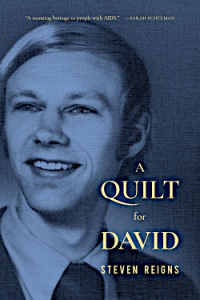 In these early years of the AIDS epidemic, when transmission was little understood, and homophobia rampant, people like David were villainized. Accuser Kimberly Bergalis landed a People magazine cover story, while others went on talk shows and made front page news.
In these early years of the AIDS epidemic, when transmission was little understood, and homophobia rampant, people like David were villainized. Accuser Kimberly Bergalis landed a People magazine cover story, while others went on talk shows and made front page news.
With a poet’s eulogistic and psychological intensity, Steven Reigns recovers the life and death of this man who also stands in for so many lives destroyed not only by HIV, but a diseased society that used stigma against the most vulnerable.
It’s impossible not to make connections between this story and how the twenty-first century pandemic has also been defined by medical misinformation and cultural bias.
Inspired by years of investigative research into the lives of David and those who denounced him, Reigns has stitched together a hauntingly poetic narrative that retraces an American history, questioning the fervor of his accusers, and recuperating a gay life previously shrouded in secrecy and shame.
Steven Reigns is a Los Angeles-based poet and educator and was appointed the first Poet Laureate of West Hollywood. Alongside over a dozen chapbooks, he has published the collections Inheritance and Your Dead Body is My Welcome Mat. Reigns holds a BA in Creative Writing from the University of South Florida, a Master of Clinical Psychology from Antioch University, and is a fourteen-time recipient of The Los Angeles County’s Department of Cultural Affairs’ Artist in Residency Grant. He edited My Life is Poetry, showcasing his students’ work from the first-ever autobiographical poetry workshop for LGBT seniors. Reigns has lectured and taught writing workshops around the country to LGBT youth and people living with HIV. Currently he is touring The Gay Rub, an exhibition of rubbings from LGBT landmarks, facilitates the monthly Lambda Lit Book Club, and is at work on a new collection of poetry.
A Quilt for David Paperback
by Steven Reigns (Author)
2021
Language: English
Publisher: City Lights Publishers
Paperback
128 pages
ISBN-10: 0872868818
ISBN-13: 978-0872868816
$11.12
• fleursdumal.nl magazine
More in: #Editors Choice Archiv, - Book News, - Bookstores, AIDS, Archive Q-R, Archive Q-R, LGBT+ (lhbt+)
From acclaimed independent journalist Kevin Gosztola, this carefully-documented analysis of the government’s case against Julian Assange and its implications for press freedom acts as a crucial, compelling guidebook to Assange’s upcoming trial.
Guilty of Journalism is a joint production of The Censored Press and Seven Stories Press.
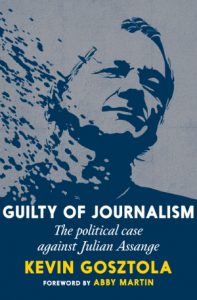 The legal action against Julian Assange is poised to culminate in a trial in the United States in 2023, and this book will help the public understand the proceedings. The establishment media’s coverage of WikiLeaks founder Julian Assange’s extradition case has focused on his deteriorating health and what CBS News called his “secret family,” but most of this coverage failed to detail the complex issues at stake against Assange.
The legal action against Julian Assange is poised to culminate in a trial in the United States in 2023, and this book will help the public understand the proceedings. The establishment media’s coverage of WikiLeaks founder Julian Assange’s extradition case has focused on his deteriorating health and what CBS News called his “secret family,” but most of this coverage failed to detail the complex issues at stake against Assange.
Guilty of Journalism outlines how WikiLeaks exposed the reality of American wars, the United States government’s unprecedented indictment against Assange as a publisher, and the media’s role in persuading the public to “shoot the messenger.”
This new book by Kevin Gosztola, who has spent the last decade covering Assange, WikiLeaks, and the wider war on whistleblowers, tells the full story based on testimony from dozens of witnesses. It examines abuses of power by the CIA and the FBI, including a spying operation that targeted Assange’s family, lawyers, and doctors. Guilty of Journalism offers a balanced and comprehensive perspective on all the events leading up to what press freedom advocates have called the trial of the century.
Kevin Gosztola has spent the last decade reporting on Assange, WikiLeaks, and the wider war on whistleblowers. He is cofounder and managing editor of Shadowproof, an independent news outlet focused on systemic abuses of power in business and government, and the curator of The Dissenter newsletter. Gosztola also produces and co-hosts the weekly podcast, “Unauthorized Disclosure.” His work has appeared in outlets such as The Nation, Salon, Common Dreams, and Truthout, and he has been a featured guest on Democracy Now!, The Real News Network, CounterSpin, and Al Jazeera English. He is coauthor of Truth and Consequences: The US vs. Bradley Manning (Sinclair Books, 2012; with Greg Mitchell).
Guilty of Journalism
The Political Case Against Julian Assange
by Kevin Gosztola
Foreword by Abby Martin
Seven Stories Press
Paperback
Publish Date: 07-03-2023
ISBN: 9781644212721
Pages: 256
$16.95
• fleursdumal.nl magazine
More in: - Book News, - Bookstores, Archive G-H, AUDIO, CINEMA, RADIO & TV, MUSEUM OF PUBLIC PROTEST, REPRESSION OF WRITERS, JOURNALISTS & ARTISTS
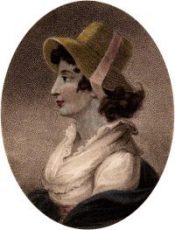
The Rights of Women
Yes, injured Woman! rise, assert thy right!
Woman! too long degraded, scorned, opprest;
O born to rule in partial Law’s despite,
Resume thy native empire o’er the breast!
Go forth arrayed in panoply divine;
That angel pureness which admits no stain;
Go, bid proud Man his boasted rule resign,
And kiss the golden sceptre of thy reign.
Go, gird thyself with grace; collect thy store
Of bright artillery glancing from afar;
Soft melting tones thy thundering cannon’s roar,
Blushes and fears thy magazine of war.
Thy rights are empire: urge no meaner claim,—
Felt, not defined, and if debated, lost;
Like sacred mysteries, which withheld from fame,
Shunning discussion, are revered the most.
Try all that wit and art suggest to bend
Of thy imperial foe the stubborn knee;
Make treacherous Man thy subject, not thy friend;
Thou mayst command, but never canst be free.
Awe the licentious, and restrain the rude;
Soften the sullen, clear the cloudy brow:
Be, more than princes’ gifts, thy favours sued;—
She hazards all, who will the least allow.
But hope not, courted idol of mankind,
On this proud eminence secure to stay;
Subduing and subdued, thou soon shalt find
Thy coldness soften, and thy pride give way.
Then, then, abandon each ambitious thought,
Conquest or rule thy heart shall feebly move,
In Nature’s school, by her soft maxims taught,
That separate rights are lost in mutual love.
Anna Laetitia Barbauld
(1743 – 1825)
The Rights of Women
Anna Laetitia Barbauld wrote this poem in 1793,
in response to Mary Wollstonecraft’s ‘A Vindication of the Rights of Woman´.
• fleursdumal.nl magazine
More in: # Classic Poetry Archive, Archive A-B, Archive A-B, Feminism, The Ideal Woman
In the late 1880s, a dashing young Italian aristocrat made an astonishing confession to the novelist Émile Zola.
In a series of revealing letters, he frankly described his sexual experiences with other men—including his seduction as a teenager by one of his father’s friends and his first love affair, with a sergeant during his military service—as well as his “extraordinary” personality.
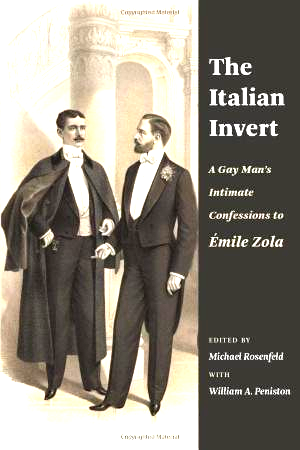 Judging it too controversial, Zola gave it to a young doctor, who in 1896 published a censored version in a medical study on sexual inversion, as homosexuality was then known. When the Italian came across this book, he was shocked to discover how his life story had been distorted. In protest, he wrote a long, daring, and unapologetic letter to the doctor defending his right to love and to live as he wished.
Judging it too controversial, Zola gave it to a young doctor, who in 1896 published a censored version in a medical study on sexual inversion, as homosexuality was then known. When the Italian came across this book, he was shocked to discover how his life story had been distorted. In protest, he wrote a long, daring, and unapologetic letter to the doctor defending his right to love and to live as he wished.
This book is the first complete, unexpurgated version in English of this remarkable queer autobiography.
Its text is based on the recently discovered manuscript of the Italian’s letter to the doctor.
It also features an introduction tracing the textual history of the documents, analytical essays, and additional materials that help place the work in its historical context.
Offering a striking glimpse of gay life in Europe in the late nineteenth century, The Italian Invert brings to light the powerful voice of a young man who forthrightly expressed his desires and eloquently affirmed his right to pleasure.
Whether you persist in reading it as a proto-naturalist novel (despite the opinions of the editors of this volume) or treat it as a sociological document, The Italian Invert is a classic text of nineteenth-century sexology the interest of which is by no means limited to French (or Italian) studies. (Melanie Hawthorne, Texas A&M University)
Michael Rosenfeld holds two doctorates, one in French literature and civilization from the Université Sorbonne Nouvelle–Paris 3 and one in French language and literature from the Catholic University of Louvain in Belgium.
William A. Peniston is the librarian and archivist emeritus at the Newark Museum of Art, as well as a historian of France. His books include Pederasts and Others: Urban Culture and Sexual Identity in Nineteenth-Century Paris (2004).
Nancy Erber is professor emerita of modern languages and literature at the City University of New York. With Peniston, she edited and translated Queer Lives: Men’s Autobiographies from Nineteenth-Century France (2007).
The Italian Invert
A Gay Man’s Intimate Confessions to Émile Zola
Edited by Michael Rosenfeld with William A. Peniston.
Translated by Nancy Erber and William A. Peniston.
Pub. Date: 5 July 2022
272 Pages
Format: Paperback
Publisher: Columbia University Press
Language: English
Paperback: 272 pages
ISBN-10: 0231204892
ISBN-13: 978-0231204897
List Price: £25.00
• fleursdumal.nl magazine
More in: #Biography Archives, - Book Lovers, - Book News, - Book Stories, Archive Y-Z, Émile Zola, LGBT+ (lhbt+)
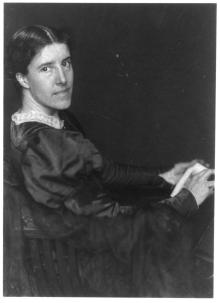
Women Do Not Want It
When the woman suffrage argument first stood upon its legs,
They answered it with cabbages, they answered it with eggs,
They answered it with ridicule, they answered it with scorn,
They thought it a monstrosity that should not have been born.
When the woman suffrage argument grew vigorous and wise,
And was not to be answered by these opposite replies,
They turned their opposition into reasoning severe
Upon the limitations of our God-appointed sphere.
We were told of disabilities–a long array of these,
Till one could think that womanhood was merely a disease;
And “the maternal sacrifice” was added to the plan
Of the various sacrifices we have always made–to man.
Religionists and scientists, in amity and bliss,
However else they disagreed, could all agree on this,
And the gist of all their discourse, when you got down in it,
Was–we could not have the ballot because we were not fit!
They would not hear the reason, they would not fairly yield,
They would not own their arguments were beaten in the field;
But time passed on, and someway, we need not ask them how,
Whatever ails those arguments–we do not hear them now!
You may talk of suffrage now with an educated man,
And he agrees with all you say, as sweetly as he can:
‘T would be better for us all, of course, if womanhood was free;
But “the women do not want it”–and so it must not be!
‘T is such a tender thoughtfulness! So exquisite a care!
Not to pile on our frail shoulders what we do not wish to bear!
But, oh, most generous brother! Let us look a little more–
Have we women always wanted what you gave to us before?
Did we ask for veils and harems in the Oriental races?
Did we beseech to be “unclean,” shut out of sacred places?
Did we beg for scolding bridles and ducking stools to come?
And clamour for the beating stick no thicker than your thumb?
Did we ask to be forbidden from all the trades that pay?
Did we claim the lower wages for a man’s full work today?
Have we petitioned for the laws wherein our shame is shown:
That not a woman’s child–nor her own body–is her own?
What women want has never been a strongly acting cause,
When woman has been wronged by man in churches, customs, laws;
Why should he find this preference so largely in his way,
When he himself admits the right of what we ask today?
Charlotte Perkins Gilman
(1860-1935)
Women Do Not Want It
Suffrage Songs and Verses
• fleursdumal.nl magazine
More in: #Editors Choice Archiv, Archive O-P, Archive O-P, Feminism, The Ideal Woman
Thank you for reading Fleurs du Mal - magazine for art & literature